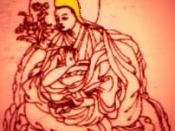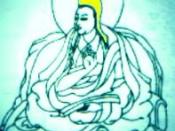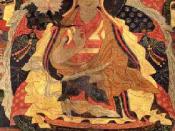Introduction.
Religion always requires its people's undoutful beliefs and unquestionable, sometimes irratinoal, devotion to it. When combined with politics, it becomes an unchallangable power. Among the very few people who possess this power, the Dalai Lama is one of them.
However, politics in Tibet had never been as significant as today. It had always been a place where Buddhism was set above everything. From the time Buddhism came to Tibet circa the mid seventh century during the reign of King Songtsen Gampo, although experienced few times of devastation to the local religion, most people still kept the faith in Buddhism. They didn't care much about the politics or have an exact concept of Tibet as a country after the collapse of Tubo (the ancient Tibet) as they were always in a state of foreign rule such as the conquer of Mongol in Yuan empire, the absorption of the Qing Dynasty and the invasion of the British troops.
Problems began to emerge after the delaration of the Independence of Tibet by 13th Dalai Lama. Wars against the Hans and the escape of the 14th Dalai Lama to India drove Tibet more political each day. It had already become a world political issue especially after the disappearance of the 11th Panchen chosen by the Dalai Lama and another Panchen chosen by the China Communist Party. Disputes from the westerns to China and the Dalai Lama with the Nobel Peace Prize, too many things have happened due to the Tibet problem---a political problem. However, what do the local Tibetan people really want? In my essay, I, as a Chinese under a western education system, attemp to discover the influence of the political issues over the Tibetan religion and how the people's perspectives are changed.
In order to compare the religious change of...


